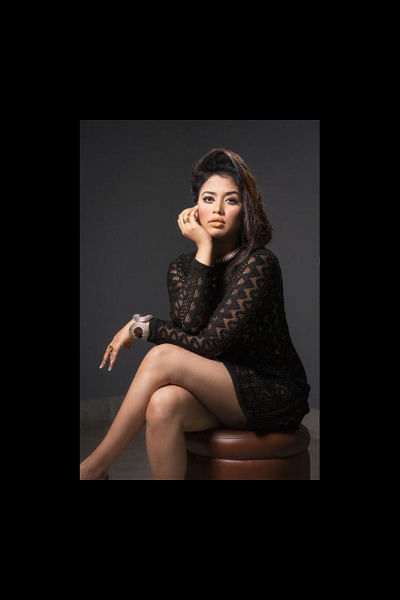ASHNA HABIB BHABNA - DRIVEN TO SHINE

So Bhabna, how or why did you choose to join the entertainment industry and become an actress?
My father is a writer, and I am their eldest child, so naturally there were always a lot of expectations from me. My parents experimented with trying to teach me in all the fields of the arts; be it singing, dancing, etc. I only took dancing seriously and that was what I mostly focused on, and I have won multiple national awards in dance along with a few international ones in India, Malaysia and Singapore. I feel that it gave me the boost I needed to enter into the film and media sector. I started modelling, but after that, serious acting started after my HSC exams in "Dehorokkhi".
Why are you not as active in TV dramas or in modelling nowadays?
I really did not like the world of modelling as it did not suit the type of work I wanted to do and the persona I wanted for myself. I wanted to establish myself as a brand rather than be defined by brands, for which I was faced with a lot of critique from my peers in the industry.
Nevertheless, I stuck to my guns and moved away from modelling towards television dramas. I have no complains about TV dramas, but always saw myself as a film actress rather than a television actress. I was never put off by television acting, but it was my dream to be a film actress and I had turned down many opportunities before because I like to focus more on doing quality work rather than churning out quantity.
My first friend in the media world, Raisul Islam Asad, told me to be selective, and having grown up with greats like Mamunur Rashid around me, I always saw them taking it as a serious art rather than a commercial mean, which is what I strive to achieve and make my mark as.
So what do you prioritize most when doing films and how has your childhood affected your career?
You see, films are a matter of taste, and tastes vary from person to person. So, the first thing I always prioritized, even in television and in modelling was the story and the script. Equally important, I feel, is the director you're working with. If you don't know the man behind the camera well and there is no trust, the work tends to suffer. If you watch my work in the telefilm "Protidin Shonibar", you would understand. I was very moved by the emotions and the story of it, and equally moving was the response I received from the audience. As for my childhood, since my father is a writer, he always urged me and my sister to write about our experiences, so I've had much training in being expressive and I think this has helped me a lot. Also, my whole family is supportive of the work I do and my father even helps by reading the scripts and helping me decide for the works I will be doing.
Let's talk about "Bhoyonkor Shundor", what is your experience on that?
I really liked working for it and I like Animesh Aich's work and since we have previously worked on television, it was very comfortable for me. I was initially supposed to work for another project of his, "Noyontara" as he feels my personality perfectly matches with that. But since he wanted to work on this and thought I would suit this role as well, I ended up shooting for it. I liked every minute of working for "Bhoyonkor Shundor" and I believe "Noyontara" would be also very good as it has a very moving story of two people that exemplify innocence.
Who are you influenced by?
I really admire the works of Suborna Mustafa, Bipasha Hayat, Shomi Kaiser and Joya Ahsan.
What about your love life?
I feel that love and being loved is an essential for life, especially for an artist.
What are some of your upcoming works?
I have screen tested for a couple of movies now and some movies are under process. "Bhoyonkor Shundor" will be released early next year and I really hope the audience will like it.
by Mohaiminul Islam

 For all latest news, follow The Daily Star's Google News channel.
For all latest news, follow The Daily Star's Google News channel. 



Comments